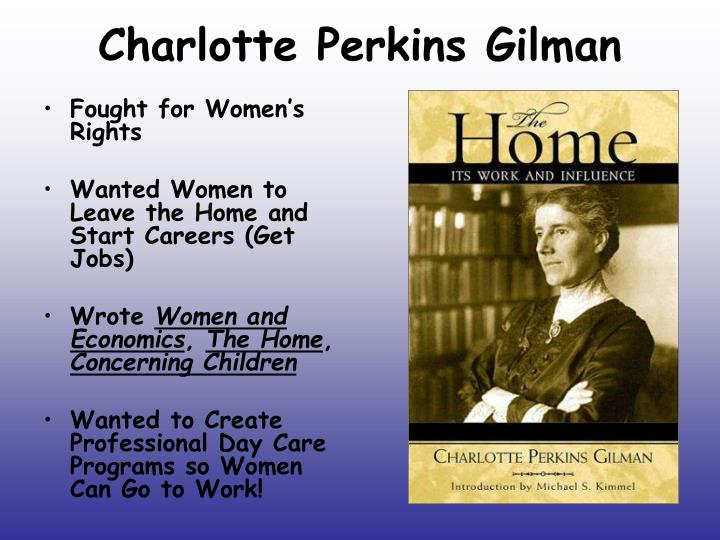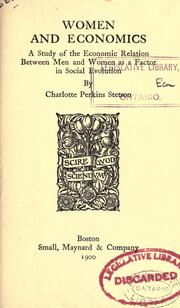
Society had to accept the idea of women, even married women, having careers. The women whose splendid extravagance dazzles the world, whose economic goods are the greatest, are often neither houseworkers nor mothers, but simply the women who hold most power over the men who have the most money. The unpaid labor that women perform in the home - child rearing, cooking, cleaning, and other activities - was, she believed, a form of oppression. She contends that women's entry into the public arena and the reforms of the family would be a win-win situation for both women and men as the public sphere would no longer be deprived of women's particular abilities, and men would be able to enlarge the possibilities to experience and express the emotional sustenance of family life. Gilman believed that women would be equal to men only when they were economically independent. She stresses the connection between work and home and between public and private life calls for extensive childcare facilities, parental leave policies and wages for housework and argues for new housing arrangements with communal kitchens and hired cooks. Gilman's ideas represent an integration of socialist thought and Darwinian theory and provide a disruption of the nearly all-male canon of American economic and social thought. Revived here with a new introduction, the text anticipates many of the issues and thinkers of 1960s. Yet by the mid-1960s she was nearly forgotten, and "Women and Economics" was long out of print. Saving Earth Britannica Presents Earth’s To-Do List for the 21st Century.The author of this text, Charlotte Perkins Gilman is regarded by many as one of the leading intellectuals in the women's movement in the US from 1900 to 1920.100 Women Britannica celebrates the centennial of the Nineteenth Amendment, highlighting suffragists and history-making politicians. In this classic feminist treatise, Gilman argues that womens dependence on men for their livelihood results in a state of arrested intellectual and emotional.COVID-19 Portal While this global health crisis continues to evolve, it can be useful to look to past pandemics to better understand how to respond today.Student Portal Britannica is the ultimate student resource for key school subjects like history, government, literature, and more.This Time in History In these videos, find out what happened this month (or any month!) in history.



Britannica Explains In these videos, Britannica explains a variety of topics and answers frequently asked questions.


 0 kommentar(er)
0 kommentar(er)
